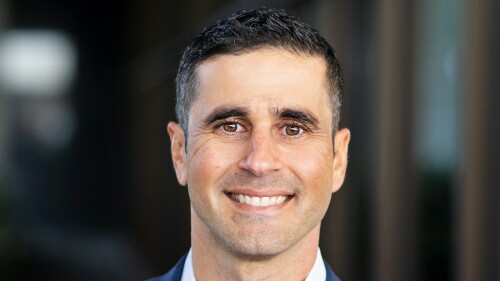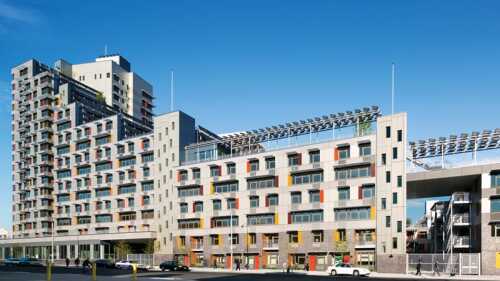Guthrie Green
Tulsa, Oklahoma
Project Owner: George Kaiser Family Foundation
Designers: John Wong; SWA Group
Guthrie Green transformed a 2.6-acre (1 ha) truck-loading facility in downtown Tulsa into a lively, highly programmed urban park offering an outdoor amphitheater, a stage, interactive fountains, and an 11,000-square-foot (1,000 sq m) café pavilion. Built and managed by the George Kaiser Family Foundation (GKFF), the park has become the area’s leading destination since its 2012 opening, each week drawing 3,000 people to daily park activities. It has sparked $150 million of investment in a variety of public, commercial, and residential projects within the emerging 19-block Brady Arts District.
As an updated version of a traditional town square, Guthrie Green demonstrates how small, strategically designed open spaces can breathe new life into underused urban districts. Its central location as an “outdoor living room,” combined with scheduled and informal park attractions, serves Tulsa’s growing urban population of artists, professionals, students, and families, as well as visitors.
Year-round park features include Food Truck Wednesdays, which regularly attract about 500 people; the all-season café pavilion; and special events to coincide with the First Friday Art Crawl, when art and exhibit venues throughout the Brady Arts District are open to visitors. This winter also saw special café-sponsored Snow Days gatherings and Picker’s Circles, at which local musicians gather to play on warm winter days. On a more informal basis, Guthrie Green is popular as a lunch spot for downtown workers and as a play area for families.
Park activities rev up from Memorial Day through October with daily tai chi, yoga, and fitness classes offered through the downtown YMCA; a produce and flea market on Sundays; a Thursday-night movie series; and weekend concerts. Regular art classes and exhibits round out the calendar year. This June the park also served as a major venue for St. Francis Tulsa Tough, a three-day cycling festival that seeks to elevate Tulsa’s profile and promote active lifestyles.
Sustainable practices inform the park’s design and provide a benchmark for energy innovations in the public realm. The project incorporates a ground-source heat pump system of 120 wells drilled to 500 feet (152 m), generating 600 tons (7.2 million Btu/hour) of heating/cooling for the Tulsa Paper Company building, a nearby warehouse retrofitted concurrently with the park. The resulting energy savings help offset operating costs for the building’s nonprofit arts- and cultural-organization tenants. Photovoltaics on the pavilion’s roof supply power for the pumps. A gridded pattern of gardens mirrors the geo-exchange well field operating out of sight below the landscape, while jets and mists of water are emitted by a series of black granite fountains.
Sculptural bioretention swales planted with native species enhance water quality and provide on-site drainage. At the park’s perimeters, the newly widened, tree-lined sidewalks improve pedestrian connections to Tulsa’s nearby arena, ballpark, and workplaces, as well as to the local restaurants, cafés, and galleries springing up within this newly vibrant downtown neighborhood.




